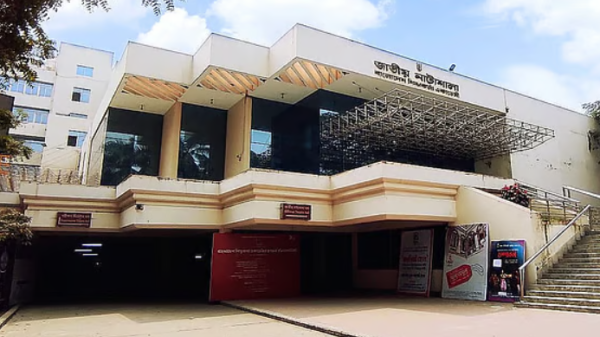

In the month of May, 54 out of 93 days have been reserved under the name of the Bangladesh Shilpakala Academy across three major auditoriums in Dhaka—National Theatre Hall, Studio Theatre Hall, and Experimental Theatre Hall. However, several theatre groups allege that these venues remained unutilized despite their formal applications being denied.
The decision by the hall allocation committee has sparked debate on social media. Theatre activist Zubayer Zahid raised the issue in the Facebook group Theatre Sangjog, questioning, “What kind of artistic activity requires Shilpakala Academy to reserve 54 working days across three venues?”
In response to the criticism, Mohammad Jasim Uddin, Acting Deputy Director of the Department of Theatre and Film at Shilpakala Academy, told Prothom Alo, “There were no applications for these 54 days, nor were any events held. That’s why these dates were reserved under the Academy’s name.”
He further added that theatre groups or cultural organizations are welcome to apply for shows during these reserved days, and the allocation will be made based on the committee’s decision.
However, theatre groups claim otherwise. Many report that they applied on time but were still denied halls. Some even stated that they had previously received allocations, which were later cancelled at the last minute—forcing them to cancel scheduled performances.
Responding to these concerns, Jasim Uddin said, “Not all applications can be granted. The committee considers quality when allocating halls. Some groups that received allocations previously didn’t follow through, or canceled at the last moment, which negatively impacted other groups. This is why we are proceeding cautiously.”
Previously, unallocated days were simply left blank in the schedule. But starting from May, those dates are now being marked as “reserved” under Shilpakala Academy. This shift, however, is being criticized by many in the theatre community as biased and lacking transparency.
With growing frustration among cultural practitioners, questions are being raised about how such allocation practices could hinder the growth of theatrical expression in the country—especially when venues remain empty while interested theatre groups are left without platforms.